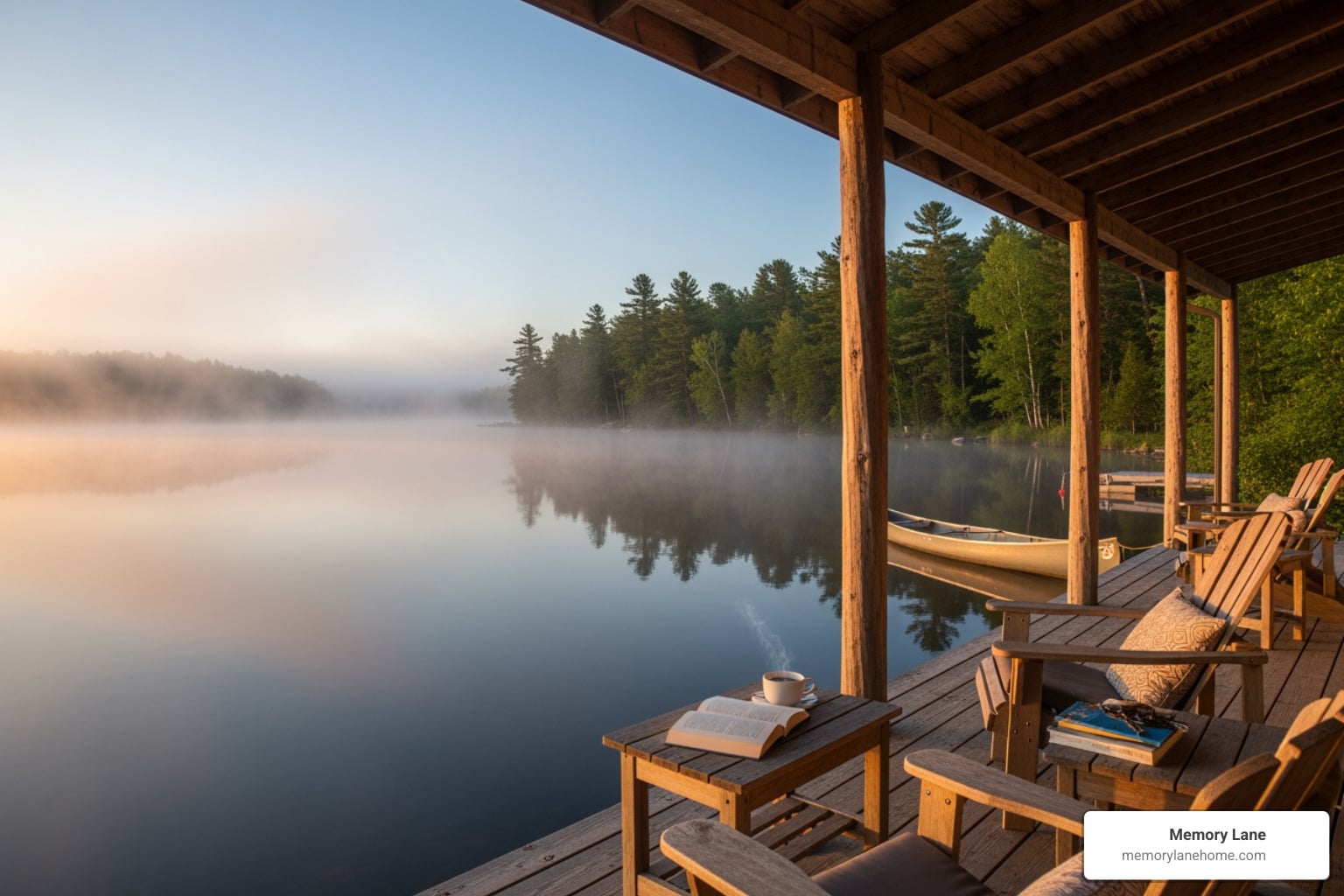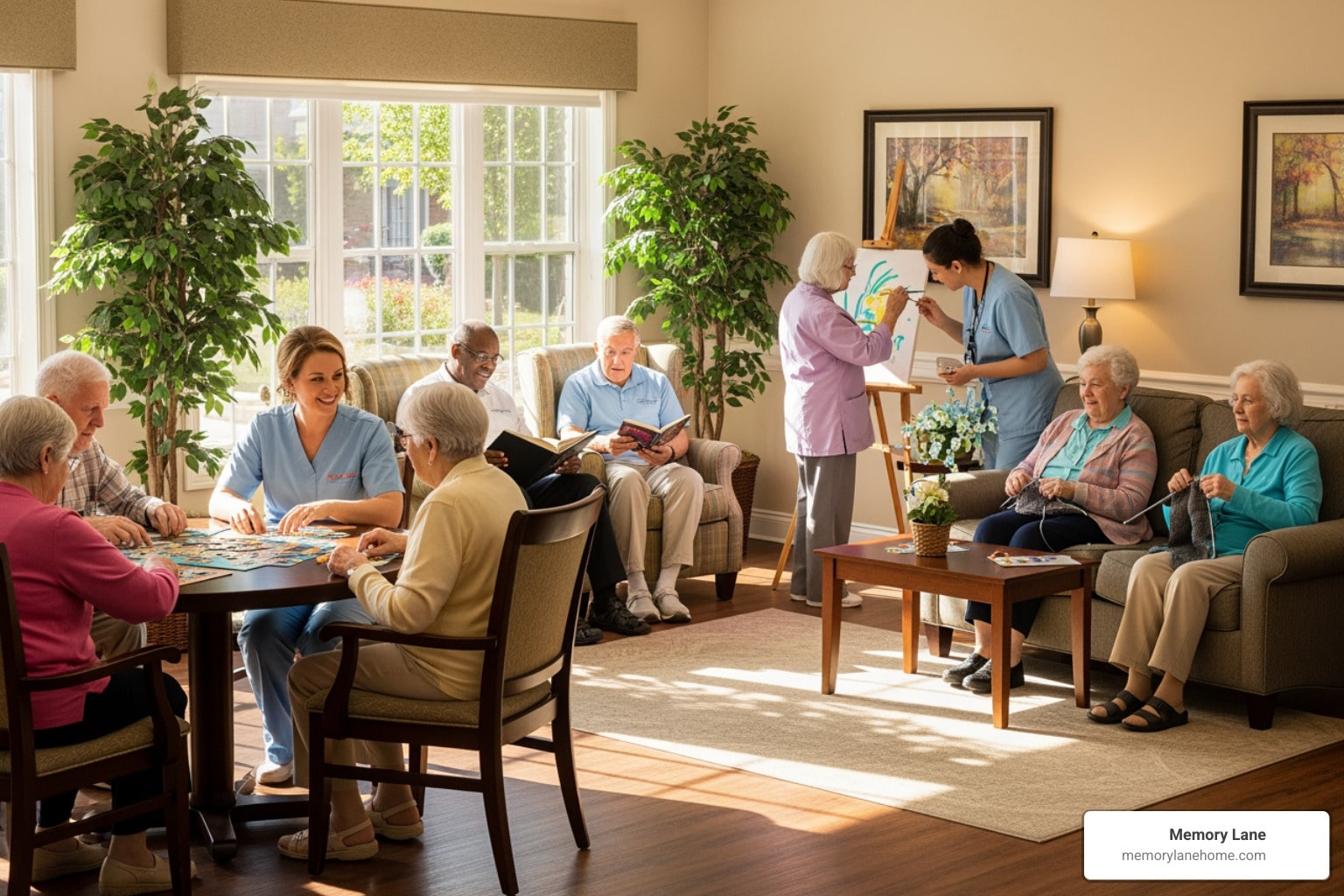Your guide to assisted living Michigan: explore costs, services, financial aid, and top communities for senior care.

Memory Lane Assisted Living: Nurturing Care for Seniors
Memory Lane Assisted Living: Nurturing Care for Seniors
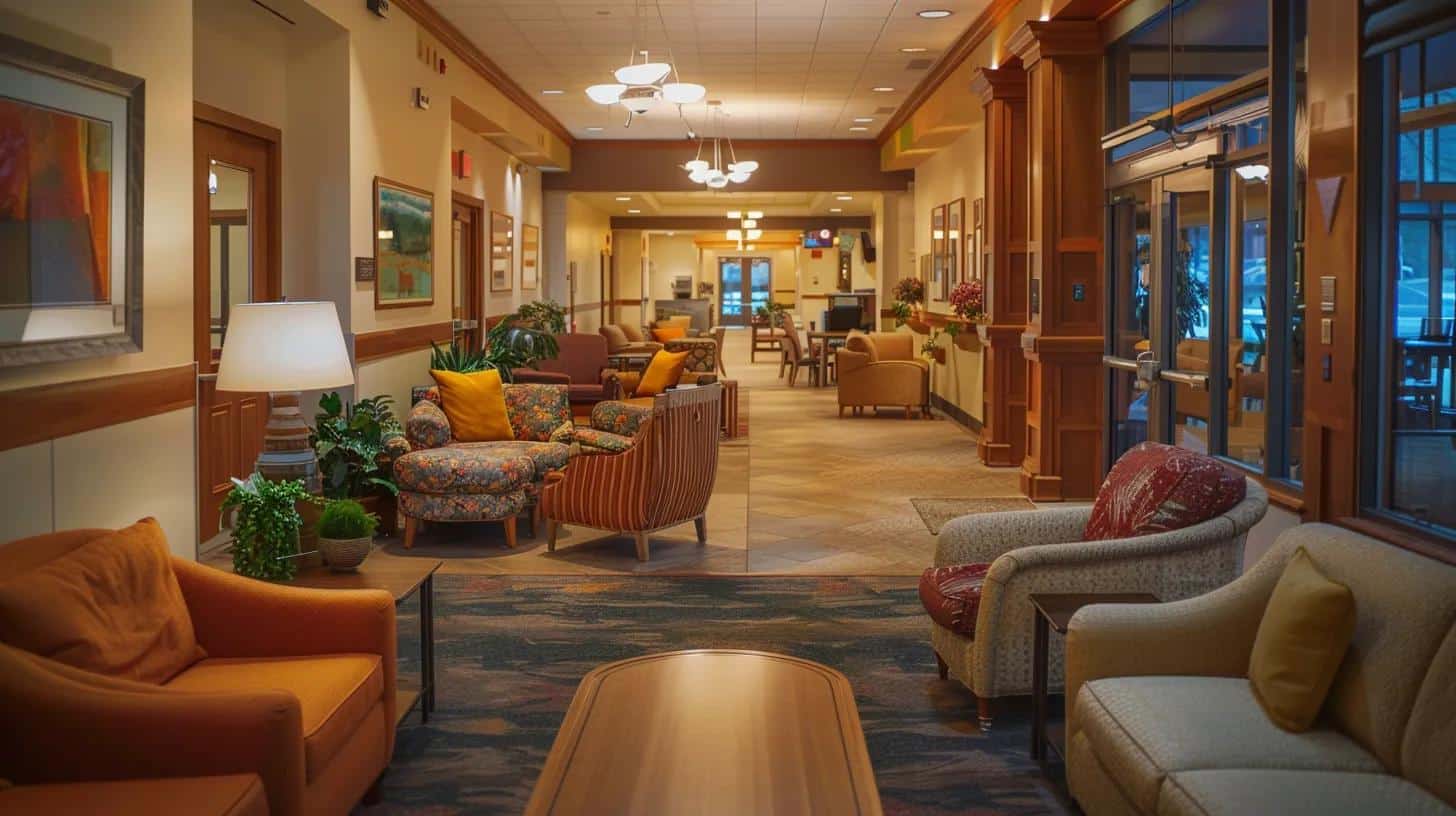
Explore the Benefits of Memory Lane Assisted Living
Memory Lane Assisted Living is a compassionate, specialized residential care option for seniors with dementia. Families seeking a home-like environment with personalized, attentive care increasingly choose Memory Lane, where a high caregiver-to-resident ratio and innovative programs support cognitive health. With six-bedroom ranch-style homes in communities such as Ypsilanti, Michigan, the facility offers a nurturing space that emphasizes familiarity and individualized support. The dedicated staff, trained in dementia care, ensures every activity and meal is part of a comprehensive plan to improve quality of life. Memory Lane combines clinical expertise with a warm, family-like atmosphere. Residents benefit from structured routines that include tailored activities, regular health monitoring, and balanced diets, along with state-of-the-art safety measures and thoughtful amenities that enhance overall well-being. This article explores Memory Lane’s unique features, health benefits, social impact, support options, affordability, and the transition process, providing insights for families and healthcare professionals.
Memory Lane Assisted Living: Your Guide to Key SectionsTable Of Contents:
- Explore the Benefits of Memory Lane Assisted Living
- Understand the Unique Features of Memory Lane Assisted Living
- Examine the Health Benefits of Memory Lane Assisted Living
- Analyze the Social Impact of Memory Lane Assisted Living
- Evaluate the Support Options Available at Memory Lane
- Investigate the Affordability of Memory Lane Assisted Living
- Learn About the Transition to Memory Lane Assisted Living
- Table: Comparison of Assisted Living Facilities
- Table: Cost Comparison and Value-Added Services
- Frequently Asked Questions
- Final Thoughts
Understand the Unique Features of Memory Lane Assisted Living
Memory Lane stands out through its specialized care programs and homelike environment designed for seniors with dementia. The facility invests in advanced staff training to manage behavior and engage residents using personalized care plans that leverage residents’ life histories, familiar routines, and consistent communication. Cognitive therapies combined with reminiscence activities help stimulate memory recall, which can slow cognitive decline over time.
Highlight the Specialized Care for Memory Impairments
A dedicated, well-trained team at Memory Lane utilizes the latest dementia care techniques. Staff design individualized care plans that address each resident’s unique patterns and preferences using methods such as validation and reminiscence therapy. For example, using family photos and familiar music helps enhance mood and recollection while preserving a resident’s identity and dignity.
Discuss Tailored Activities Promoting Engagement and Socialization
Daily activities are specially designed to foster social interaction and cognitive stimulation. Memory Lane schedules include memory games, art therapy, music sessions, and group storytelling to reconnect residents with their past. Small group sessions and family-involved activities reduce isolation and anxiety while promoting peer bonding. Activities are regularly updated based on resident feedback and adjusted to suit varying cognitive abilities.
Explain the Importance of a Nurturing Environment
The facility’s warm, non-institutional décor, personalized room settings, and open common areas create a setting that minimizes confusion and promotes security. Clear signage, consistent color themes, and open layouts help residents navigate easily while reducing agitation. Every design detail supports independent movement within a comforting and familiar space.
Identify Staff Training Focuses on Cognitive Health
Memory Lane’s staff receive ongoing training on dementia research, behavioral management, and cognitive stimulation techniques. This training enables staff to recognize early signs of decline and promptly adjust care plans. Regular workshops, care planning meetings, and local healthcare partnerships ensure that caregivers remain current with best practices, balancing both the physical and emotional needs of residents.
Detail the Innovative Safety Measures in Place
Safety protocols at Memory Lane include advanced monitoring systems and discreet emergency alert features that provide residents with a secure yet free environment. The physical design incorporates accessible exits, secured outdoor spaces, and sensory-friendly modifications that minimize the risk of falls. These measures are regularly updated to meet current healthcare guidelines.
Describe Amenities That Support Comfort and Well-Being
Residents enjoy private living quarters that can be personalized with cherished belongings, reinforcing a sense of home. Communal dining areas serve nutritious meals created by specialized dietitians, and multi-purpose rooms host therapy sessions, hobbies, and recreational activities. Outdoor gardens and cozy seating areas offer spaces for relaxation and light physical activity, supporting residents’ overall physical, emotional, and social well-being.
Examine the Health Benefits of Memory Lane Assisted Living
Memory Lane’s structured environment and professional oversight help improve residents’ physical, emotional, and mental health. Regular routines, proactive health monitoring, and specialized programs contribute to increased mobility, emotional stability, and cognitive function.
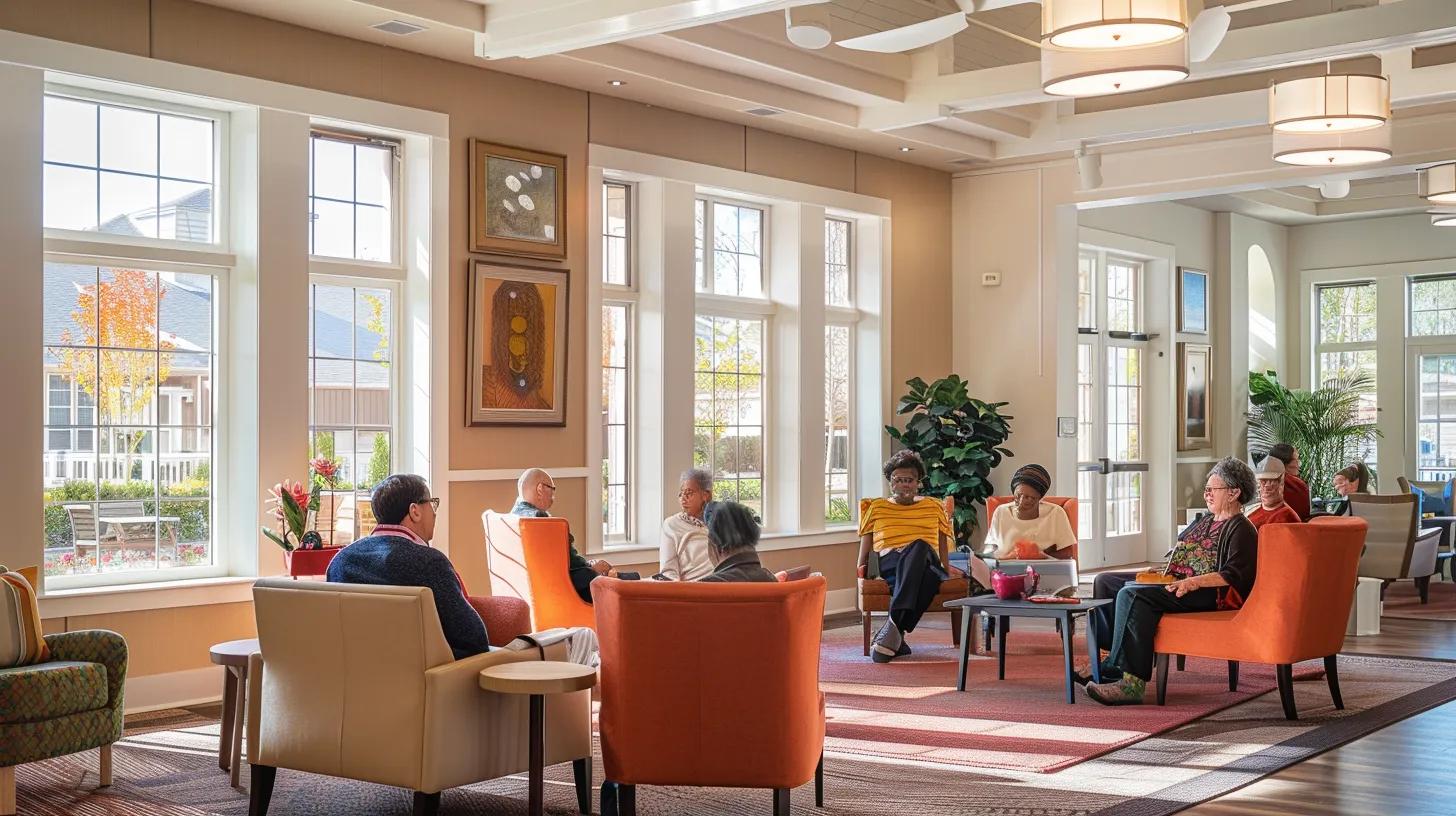
List Physical Health Advantages of Structured Living
The facility encourages physical health through scheduled exercise sessions such as light aerobics, stretching, and balance training, which reduce fall risks and maintain mobility. Regular preventive health measures, routine check-ups, and continuous monitoring of chronic conditions further enhance overall fitness and reduce hospital readmissions. Tailored dietary plans and access to physical therapy also support improved mobility and daily activity.
Discuss Emotional Well-Being Programs for Residents
Memory Lane prioritizes emotional health by providing regular mental health check-ins, group therapy, and individualized counseling. Music and art therapy sessions offer residents creative outlets to express feelings and connect with others, helping to lower stress, anxiety, and depression levels. These structured emotional support systems contribute to overall mood improvements and reduce isolation.
Explore Mental Stimulation Activities for Cognitive Support
Residents participate in cognitive exercises, including puzzles and memory games, and engage in interactive storytelling and discussions, all designed to stimulate brain function. These activities contribute to improved neural plasticity, sharper focus, and better memory recall, supporting a higher overall quality of life.
Share Benefits of a Balanced Diet With Onsite Meal Options
Nutrition plays a key role in cognitive health. Memory Lane’s menus, developed by geriatric dietitians, include antioxidants, Omega-3 fatty acids, and essential vitamins aimed at optimizing brain function. Regular nutritional assessments ensure meals are fresh and tailored to individual health needs while promoting social interaction during communal dining.
Present Exercise Plans That Promote Mobility and Fitness
Customized exercise plans, which include flexibility, strength, and balance training, are adapted according to each resident’s physical capabilities and health assessments. These routines help reduce cardiovascular risks, improve muscle tone, and enhance mental health through the release of endorphins.
Explain Regular Health Monitoring by Professional Staff
Routine medical evaluations, medication tracking, and regular cognitive assessments help the professional staff at Memory Lane recognize changes in residents’ health. This proactive monitoring allows for prompt medical intervention and continuous adjustment of personalized care plans, ultimately contributing to extended quality of life.
Analyze the Social Impact of Memory Lane Assisted Living
The social environment at Memory Lane fosters interpersonal communication and community involvement, which play a key role in residents’ emotional stability and cognitive stimulation. This supportive social structure helps reduce the isolation often experienced by seniors with dementia.
Discuss Opportunities for Building New Friendships
Daily interactions during group activities and shared meals provide ample opportunities for residents to form new friendships. Regularly scheduled social events encourage conversations and help residents establish supportive, lasting bonds, reducing feelings of loneliness and building a strong community network.
Highlight Community Involvement and Social Events
Memory Lane actively engages with the local community through intergenerational programs, art exhibitions, festive celebrations, and storytelling evenings. These events not only entertain residents but also create meaningful connections with the broader community, further enriching residents’ social lives.
Explain the Role of Family Engagement in Resident Activities
Family visits and participation in care planning meetings are strongly encouraged at Memory Lane. Regular family involvement helps maintain emotional support, reinforces familiar bonds, and builds trust between families and the care team, contributing to a smoother care experience.
Share Testimonials From Families About Social Connections
Families frequently express their gratitude for the vibrant social environment at Memory Lane. Testimonials often highlight noticeable improvements in their loved ones’ moods and behaviors, attributing these changes to enhanced social interactions and engaging activities.
Describe Intergenerational Programs Fostering Greater Inclusion
Programs that bring together residents, local youth, and community volunteers help bridge the generational gap. These intergenerational activities—such as reading circles and collaborative art projects—foster empathy and inclusion, ensuring residents feel valued and active in the wider community.
Showcase Group Outings That Enhance Community Ties
Organized group outings, ranging from local park visits to museum trips, give residents the chance to experience new environments. These outings are planned with residents’ physical and cognitive abilities in mind, ensuring safety while reinforcing community bonds and providing refreshing changes of scenery.
Evaluate the Support Options Available at Memory Lane
Memory Lane offers a comprehensive range of support options, ensuring every resident receives both personalized medical and emotional care. The flexible support framework is designed to adapt to evolving resident needs.
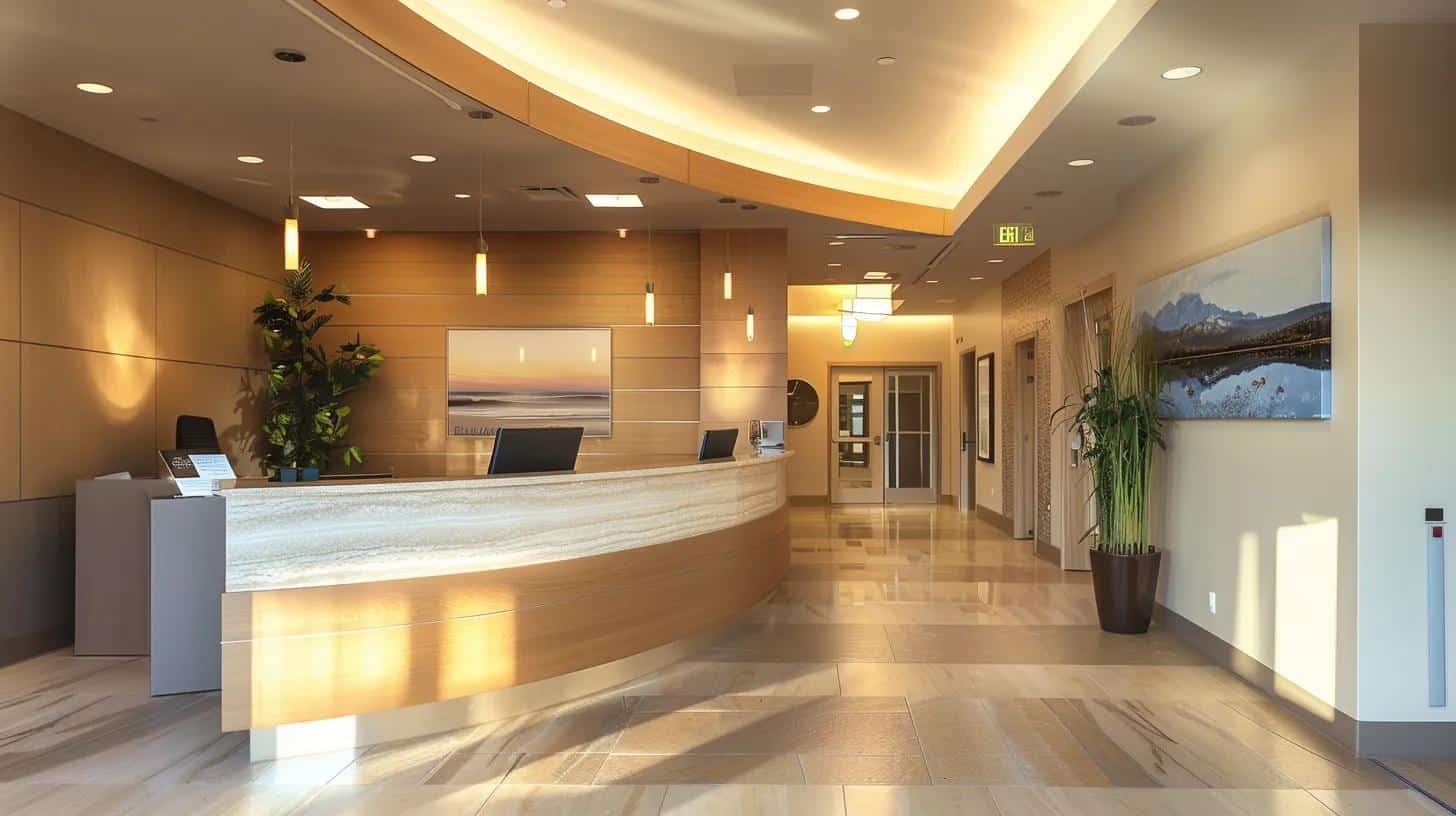
Explain Personalized Care Plans Tailored to Individual Needs
The cornerstone of Memory Lane’s support system is its personalized care plans. Developed by an interdisciplinary team in collaboration with families, these plans reflect each resident’s unique habits, preferences, and medical requirements. Regular reviews and updates – supported by technology for real-time health monitoring – ensure that care remains appropriate and effective.
Discuss the Role of 24/7 Care Without Feeling Overwhelmed
With round-the-clock care provided by a high caregiver-to-resident ratio, residents receive prompt attention whether for routine assistance or emergencies. This continuous support model promotes both physical safety and emotional well-being without overwhelming residents.
Highlight Transportation Services for Convenience
Scheduled transportation services for medical appointments, social outings, and family visits ensure that residents remain connected with the community and maintain their independence. Trained drivers familiar with the needs of memory-impaired individuals add an extra layer of support and security.
Detail Technology Support for Residents to Stay Connected
User-friendly communication tools such as video conferencing, digital photo frames, and interactive touch screens are integrated into daily care routines. These technologies not only promote mental stimulation but also help residents stay connected with their families and the facility’s network, with digital systems assisting staff in tracking health updates efficiently.
Share Resources for Families to Navigate Care Options
Memory Lane provides families with thorough resources—including guides, workshops, and direct access to care coordinators—to help them understand care options, manage transitions, and make informed decisions. One-on-one counseling and educational seminars ensure a seamless partnership between family care and professional support.
Present Educational Programs for Caregivers
Ongoing education is a priority at Memory Lane. Continuous training programs, often led by geriatric specialists and conducted in partnership with local healthcare institutions, keep caregivers updated on the latest advancements in dementia care. This commitment to professional development ensures that caregivers can manage the complex needs of each resident while delivering high-quality care.
Investigate the Affordability of Memory Lane Assisted Living
Affordability is a key consideration for families, and Memory Lane offers competitive pricing alongside various financial assistance options to ease the burden without sacrificing quality.
Compare Pricing Structures With Other Local Facilities
When compared with similar local facilities, Memory Lane’s pricing is competitive. While some facilities charge a premium for specialized memory care, Memory Lane offers comprehensive service packages—including daily care, meals, health monitoring, and social programs—at a more affordable long-term cost.
Discuss Financial Assistance Programs for Residents
Memory Lane offers several financial assistance options such as sliding scale fees, partnerships with government health programs, and flexible payment plans. Collaborations with nonprofit organizations may also provide grants or subsidies, ensuring that quality care is accessible without undue financial strain.
Explain Value-Added Services Included in Monthly Fees
Monthly fees at Memory Lane cover more than basic living expenses. They include therapeutic activities, continuous health monitoring, tailored meal plans designed by dietitians, and access to a variety of social and recreational events. This all-inclusive model offers significant value and supports overall resident well-being.
Detail Payment Plans That Ease the Financial Burden
Flexible payment options, such as monthly installments and deferred payment plans, reduce the need for large upfront investments. These plans, developed in consultation with financial advisors, help families manage expenses over time and alleviate sudden financial pressure.
Present Stories From Families Sharing Their Cost Experiences
Numerous families have shared positive experiences regarding Memory Lane’s affordability. Testimonials reveal that flexible payment options and comprehensive care packages have enabled them to access high-quality, continuous care without overwhelming financial stress.
Highlight the Long-Term Cost Benefits of Quality Care
In the long run, investing in quality memory care at Memory Lane can lead to reduced healthcare expenses due to fewer emergency interventions and hospitalizations. Improved cognitive and physical health further contribute to lowering overall care costs over time, making Memory Lane both a financially and clinically sound choice.
Learn About the Transition to Memory Lane Assisted Living
Memory Lane eases the often challenging emotional transition to assisted living through a structured move-in process. Comprehensive orientation programs, personalized move-in plans, and dedicated support ensure that both residents and families experience a smooth adjustment.

Provide Tips for a Smooth Transition for Residents
To minimize stress, Memory Lane recommends early facility visits, maintaining personal belongings for familiarity, and gradually increasing involvement in scheduled activities. These steps help bridge the gap between previous living arrangements and the new supportive environment.
Explain the Role of Family in Supporting New Residents
Family members play a crucial role during transition. Active participation in orientation sessions and care planning meetings provides emotional reassurance and helps establish a trusting relationship between families and the care team. This collaboration supports a smoother adjustment period for residents.
Discuss Potential Emotional Challenges for Residents
Transitions can trigger anxiety, confusion, or feelings of loss. Memory Lane addresses these challenges with tailored support systems including counseling, support groups, and one-on-one therapy sessions. Early intervention by professional counselors helps residents build coping strategies, easing emotional discomfort over time.
Describe Orientation Programs for Families and Residents
Orientation sessions at Memory Lane include guided tours, clear explanations of daily routines, and opportunities for families to ask questions. These programs introduce new residents to their caregivers and peer groups, setting clear expectations and helping both residents and families feel more secure.
Highlight Enrichment Activities During the Adjustment Period
During the early stages, Memory Lane offers enrichment activities such as art classes, music therapy, gentle exercise, and group discussions. These activities provide both cognitive stimulation and emotional comfort, helping residents adapt while fostering social connections.
Share Success Stories of New Residents Adapting Well
Many families report that, following the transition, residents show improved moods and increased social interaction. Success stories shared at community meetings illustrate how personalized care, structured activities, and active family involvement contribute to smooth, positive adaptations.
Table: Comparison of Assisted Living Facilities
Below is a comparison of key attributes that highlight Memory Lane’s comprehensive service model and competitive cost efficiencies.
Table: Cost Comparison and Value-Added Services
The table below summarizes Memory Lane’s fee structure and highlights additional services that enhance overall value.

Frequently Asked Questions
Q: What makes Memory Lane Assisted Living different from other memory care facilities? A: Memory Lane stands out with its specialized care plans, high caregiver-to-resident ratio, and extensive enrichment programs. The facility balances clinical expertise with personalized, compassionate support while maintaining transparent pricing.
Q: How do the tailored activities at Memory Lane support cognitive health and socialization? A: Daily activities, including memory games, art therapy, music sessions, and storytelling, are designed to stimulate cognitive function and foster social engagement. These programs help reduce isolation and enhance mood through regular, meaningful interaction.
Q: What are the financial options available to families at Memory Lane? A: Memory Lane offers competitive pricing, flexible payment plans, and financial assistance programs—such as sliding scale fees and partnerships with local health services—to help manage care costs while providing comprehensive support.
Q: How does Memory Lane manage the transition process for new residents? A: The facility provides a structured transition process that includes orientation programs, gradual acclimatization activities, and strong family involvement. This approach minimizes stress and facilitates a smooth adjustment to the new living environment.
Q: Are there specific programs to support the emotional well-being of residents? A: Yes, Memory Lane offers individualized therapy sessions, group counseling, music and art therapy, and regular mental health check-ins to help reduce anxiety and depression, ensuring continuous emotional support alongside physical care.
Q: What support is offered to families during and after the transition to Memory Lane? A: Families receive comprehensive resources including seminars, one-on-one counseling, and active participation in orientation sessions. This collaborative approach fosters trust and eases the overall transition experience.
Final Thoughts
Memory Lane Assisted Living provides superior memory care in a nurturing, engaging, and supportive environment. With personalized care plans, dynamic enrichment activities, and robust, flexible support options, the facility offers a holistic wellness model. Clear financial advantages and an all-inclusive fee structure ensure that families receive exceptional value along with high-quality clinical care. Families can confidently transition their loved ones to Memory Lane, knowing they are joining a vibrant community dedicated to promoting both cognitive health and social engagement.
